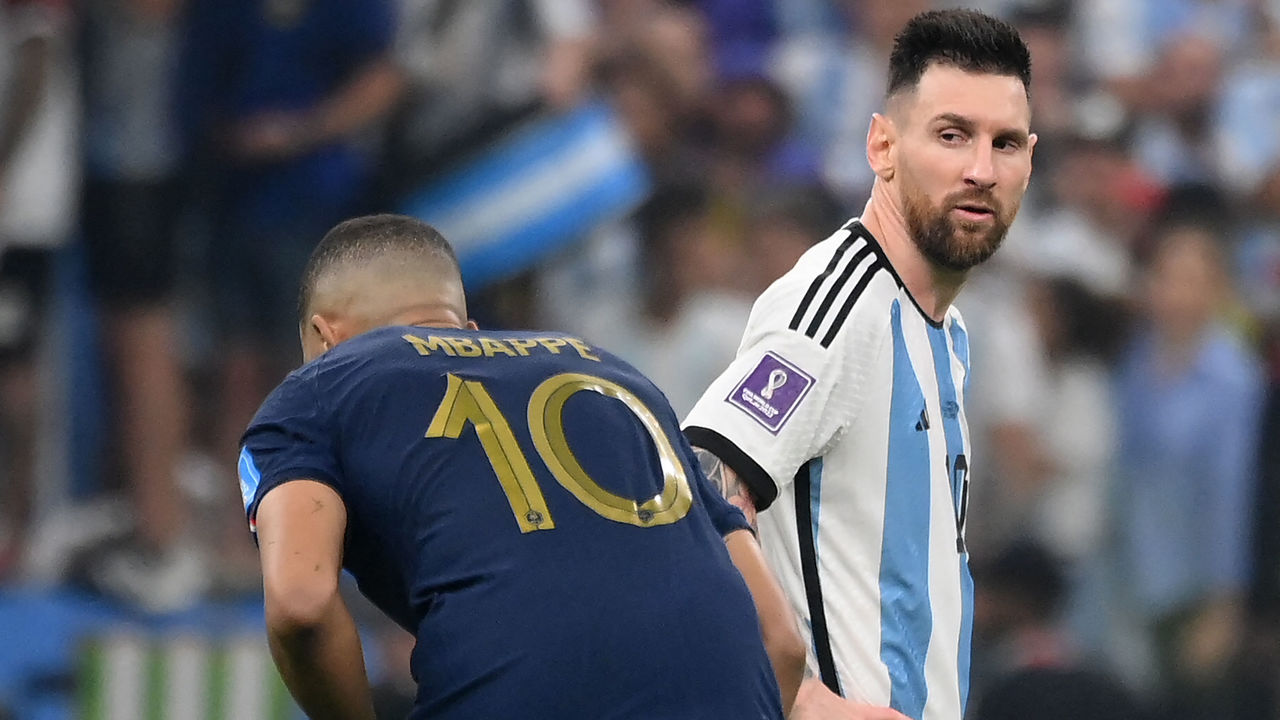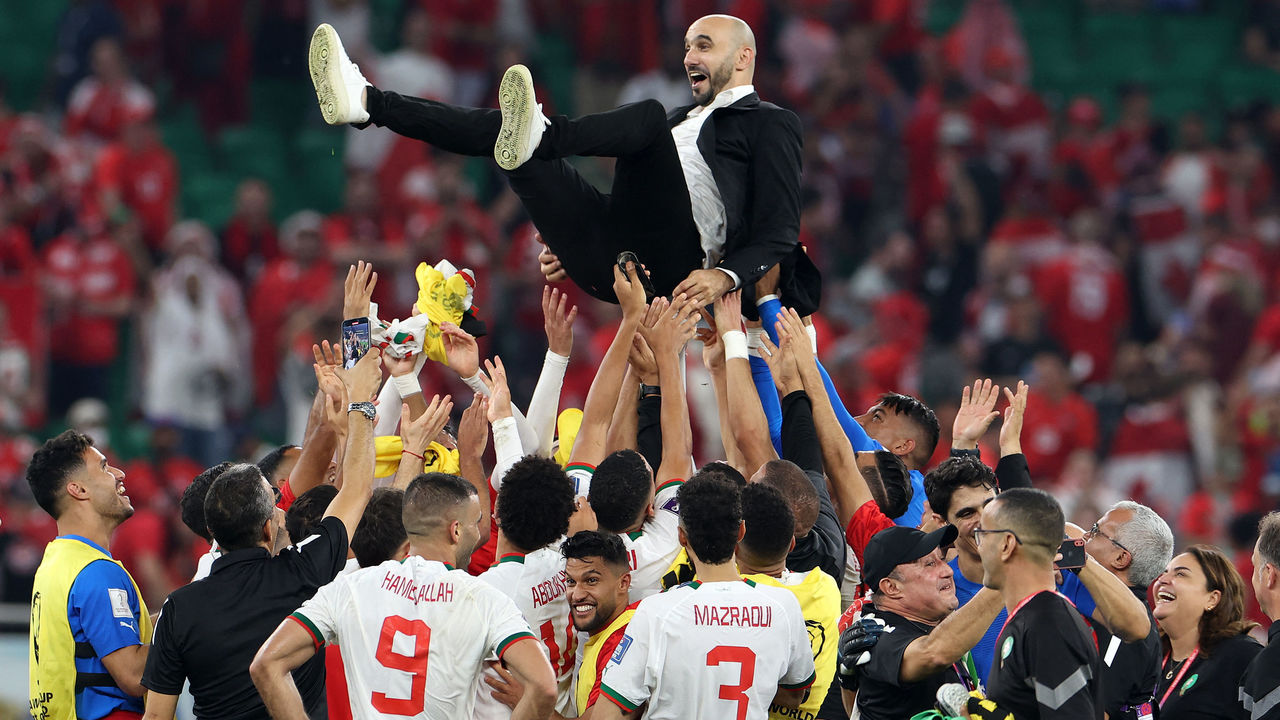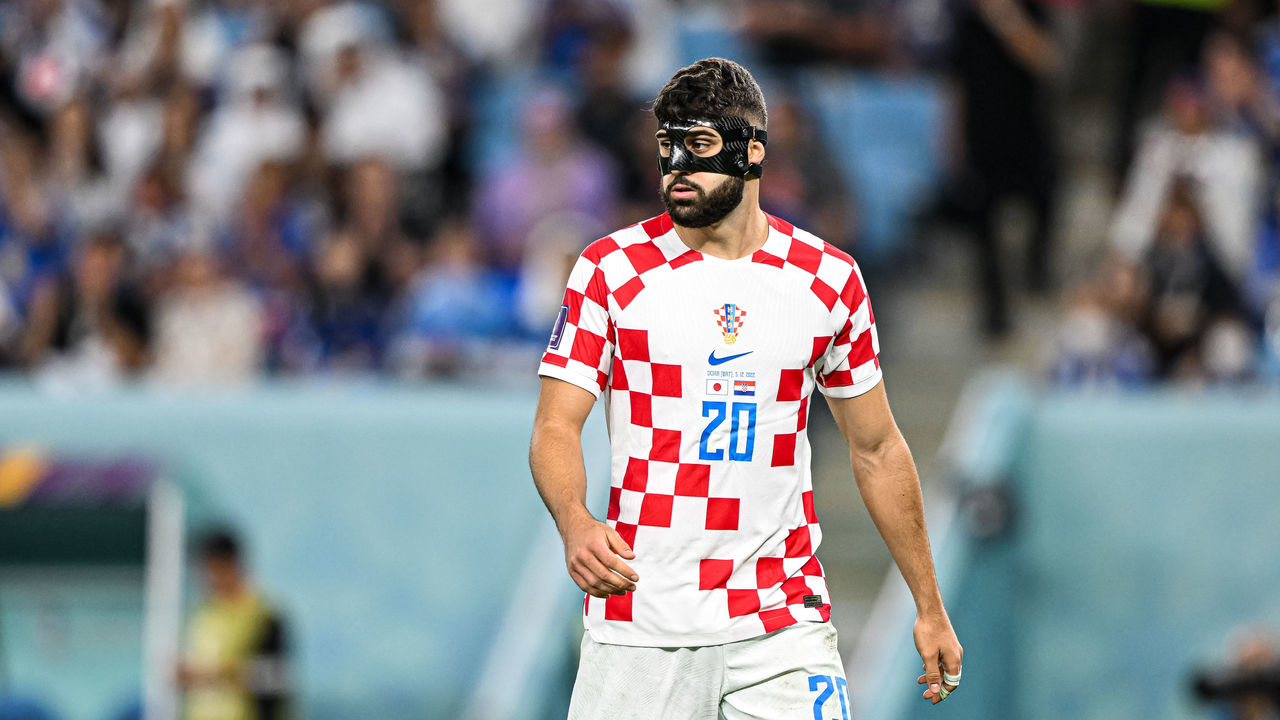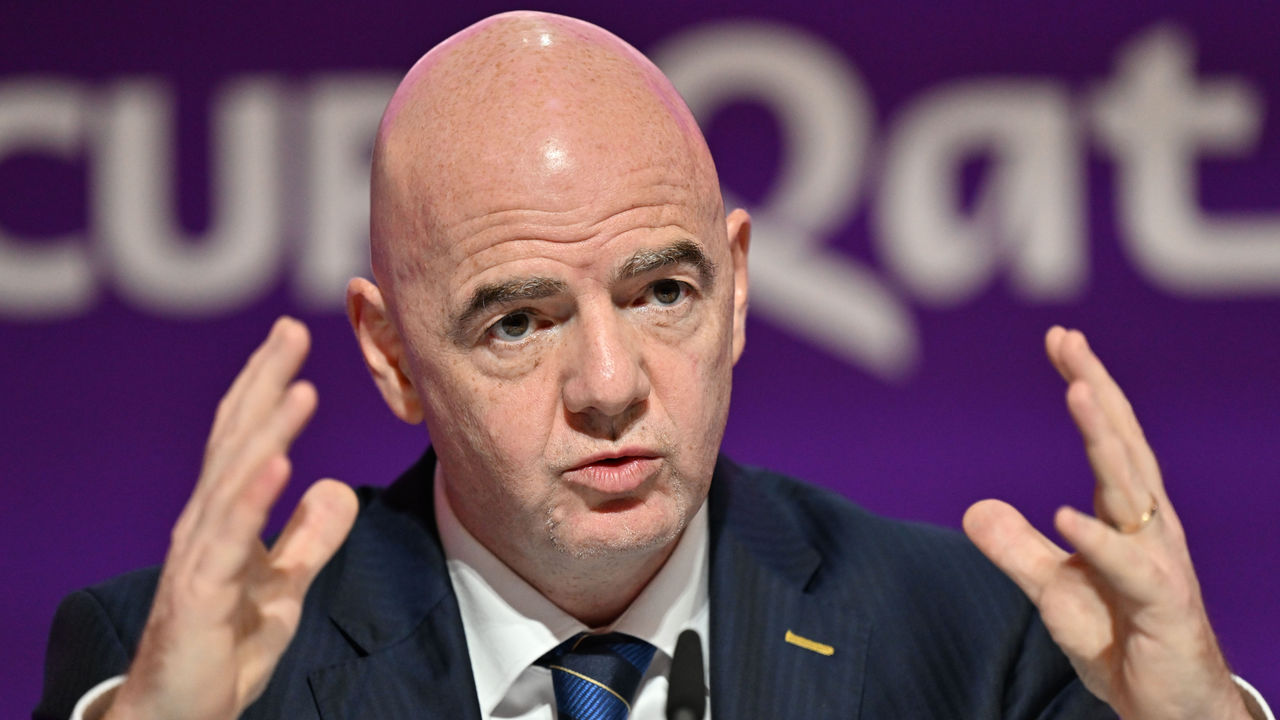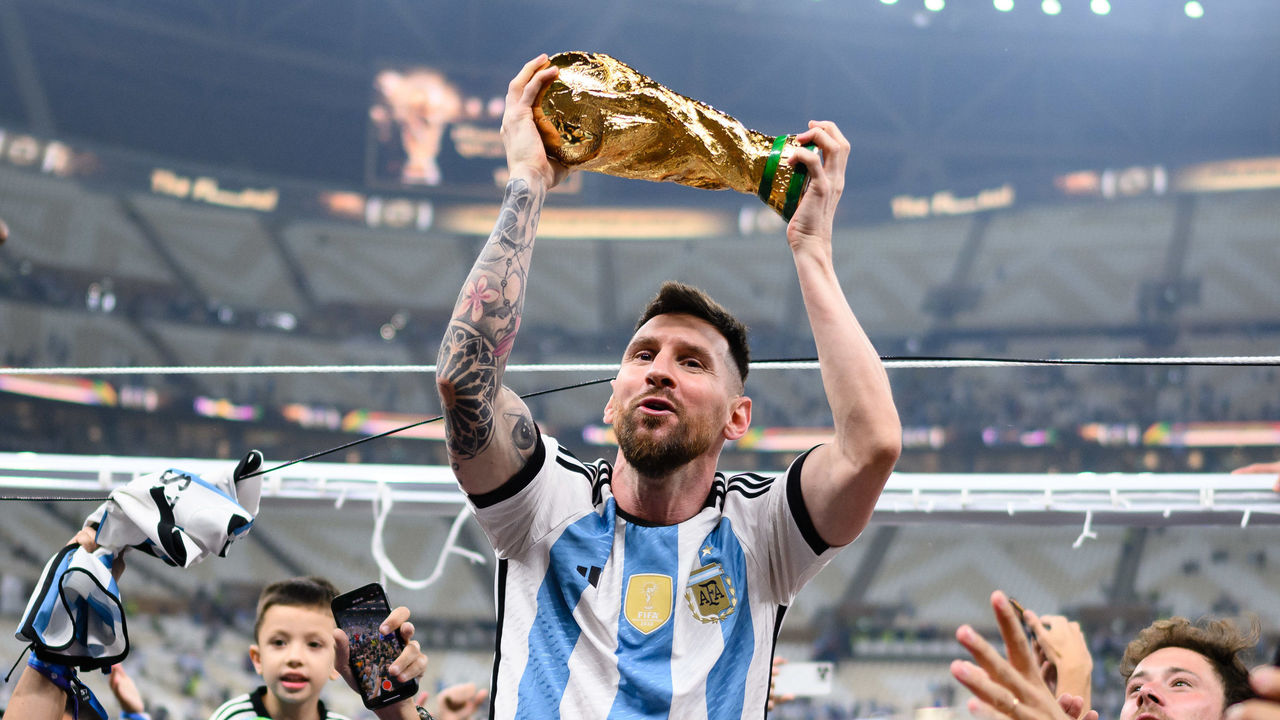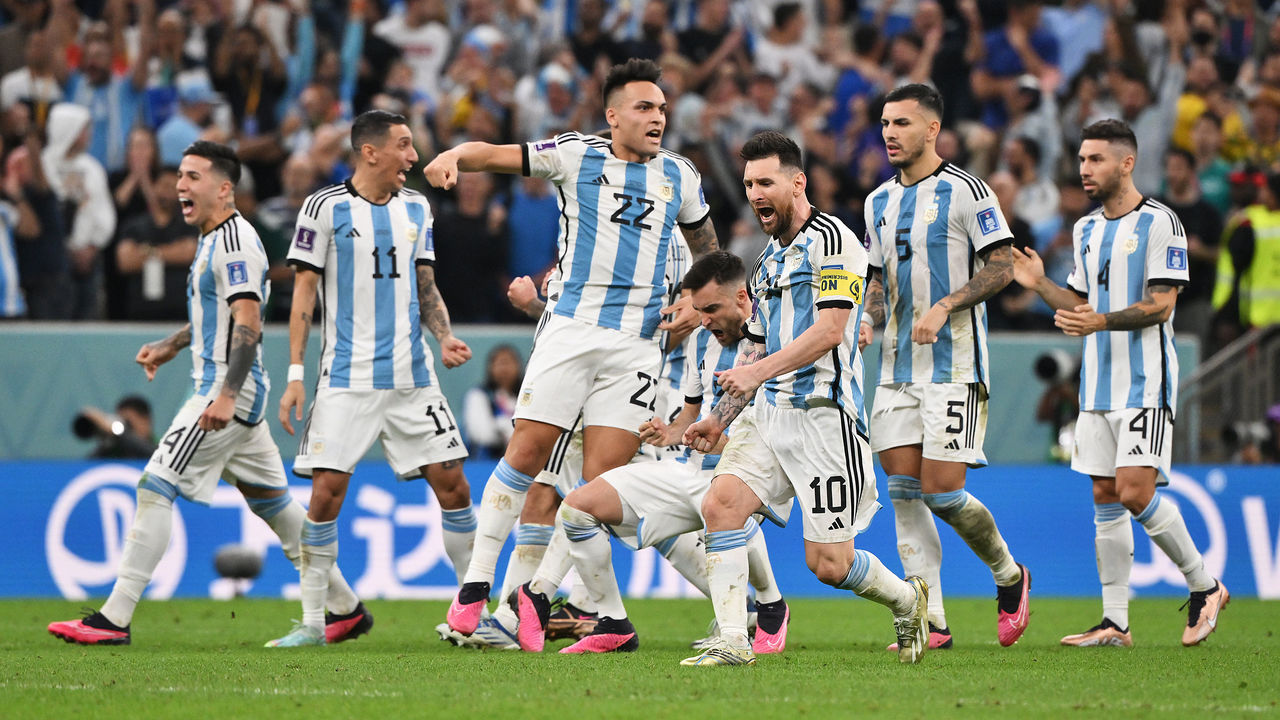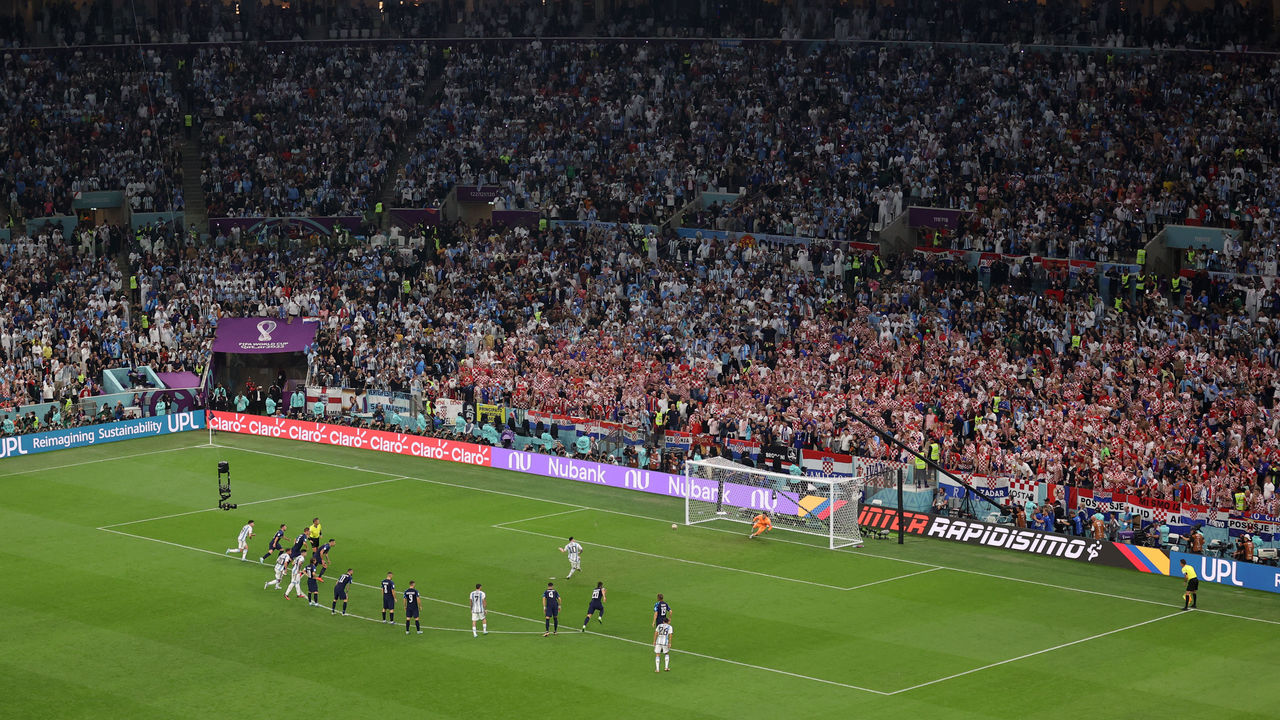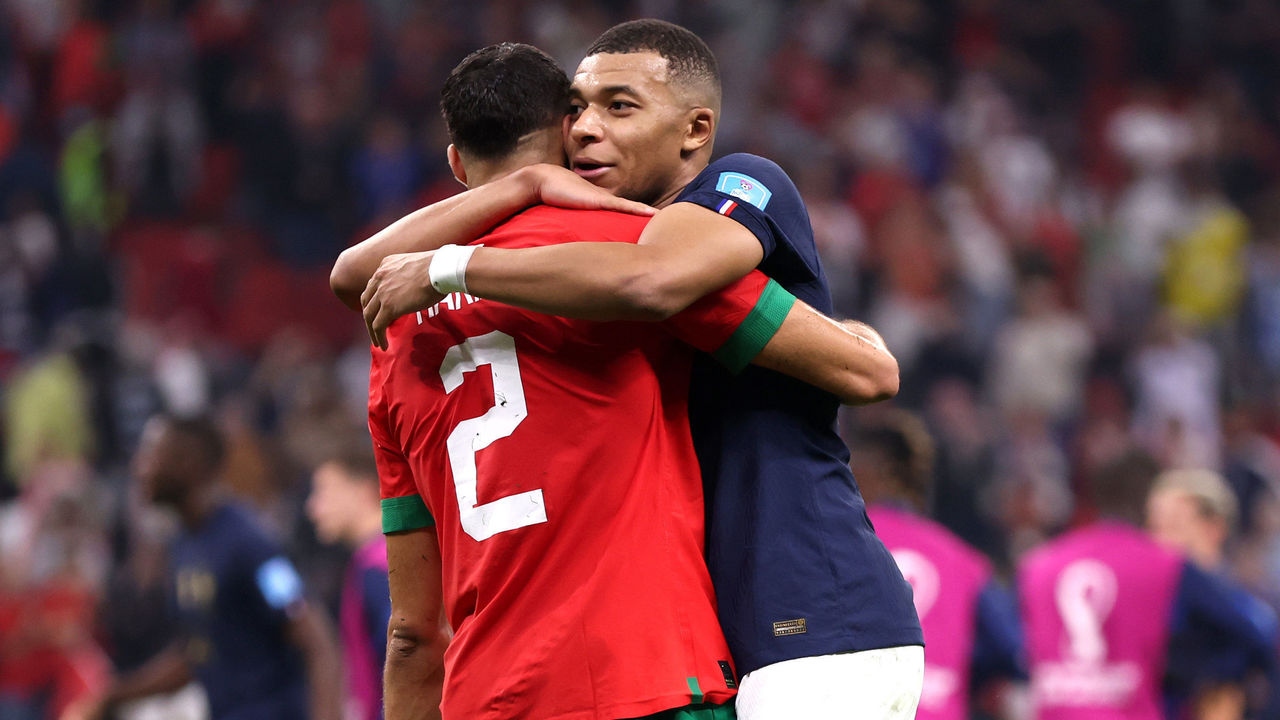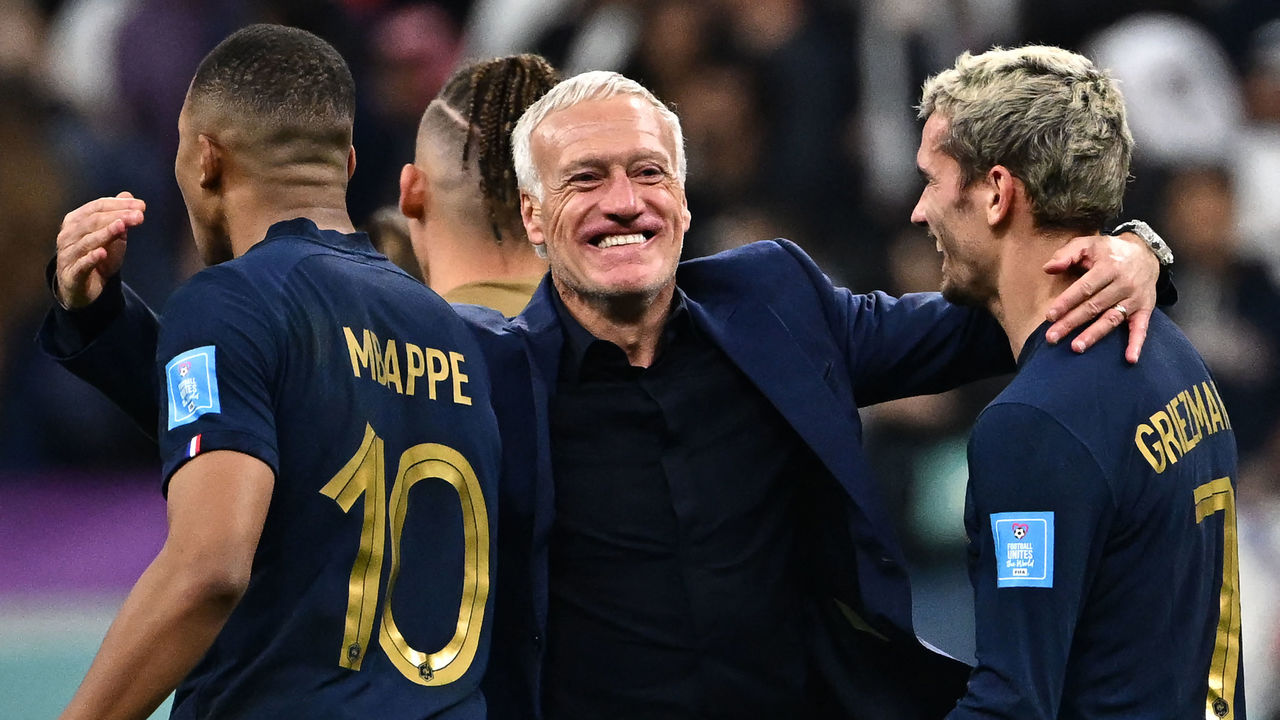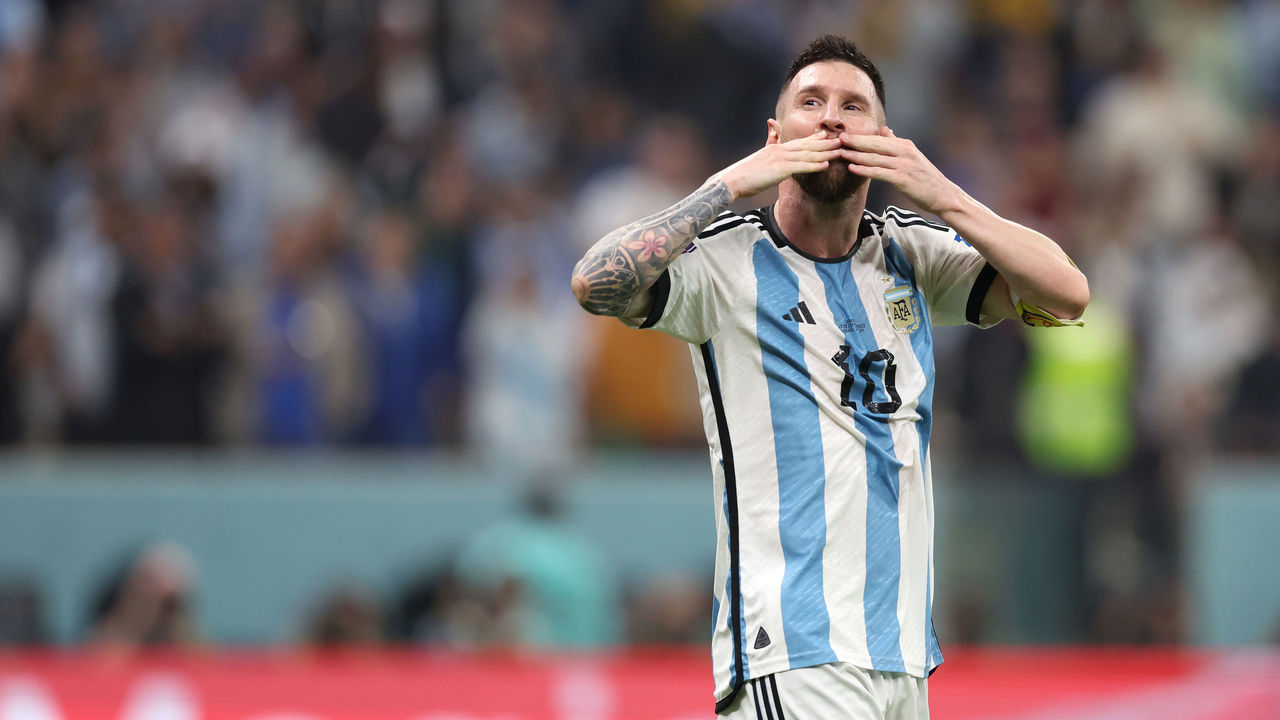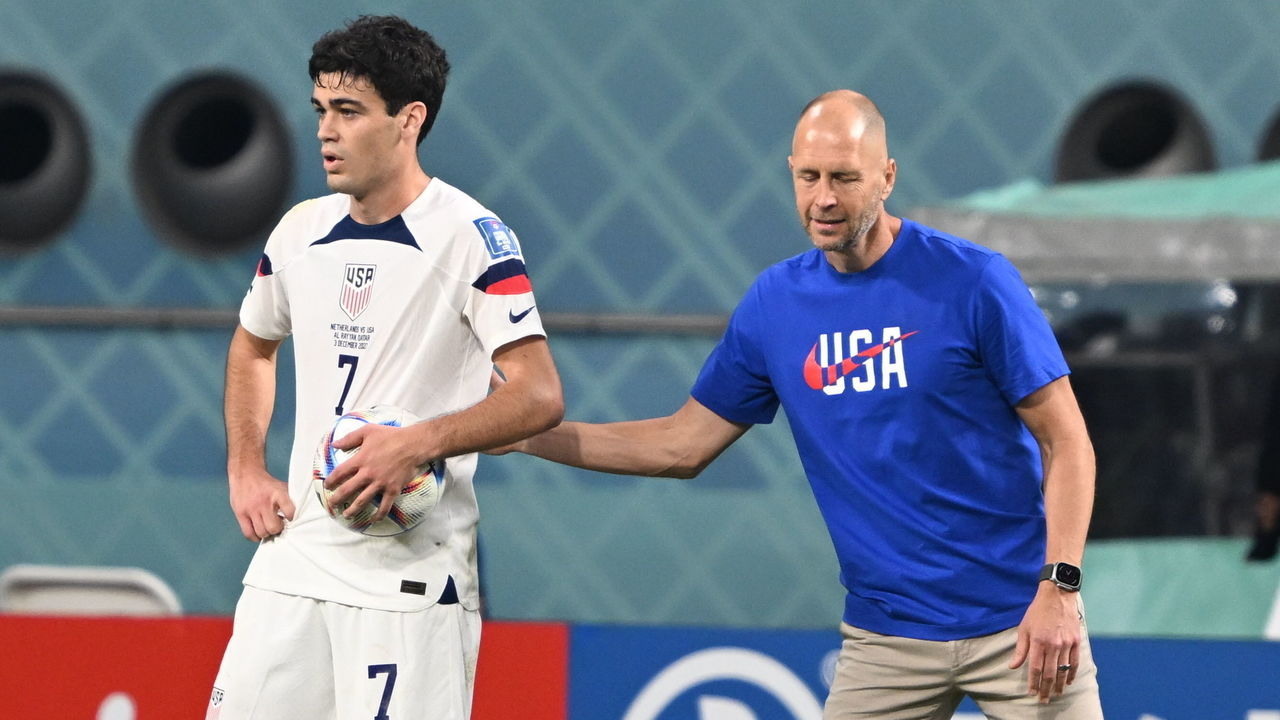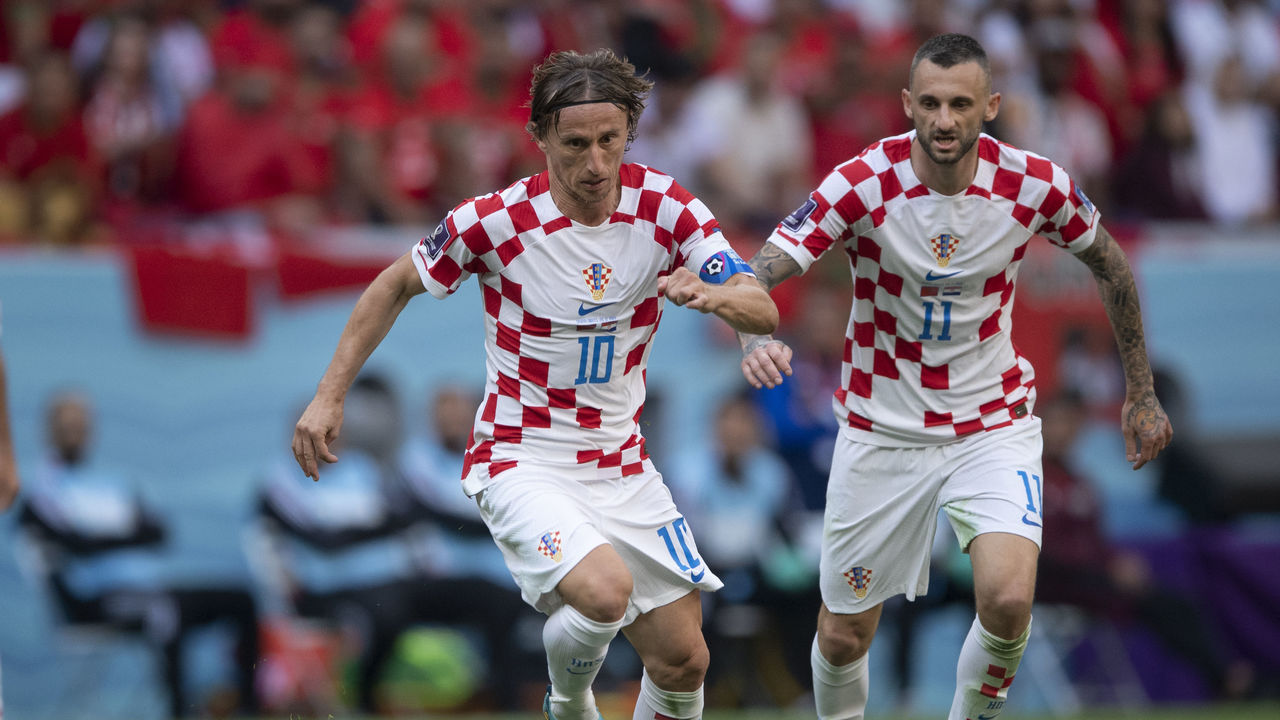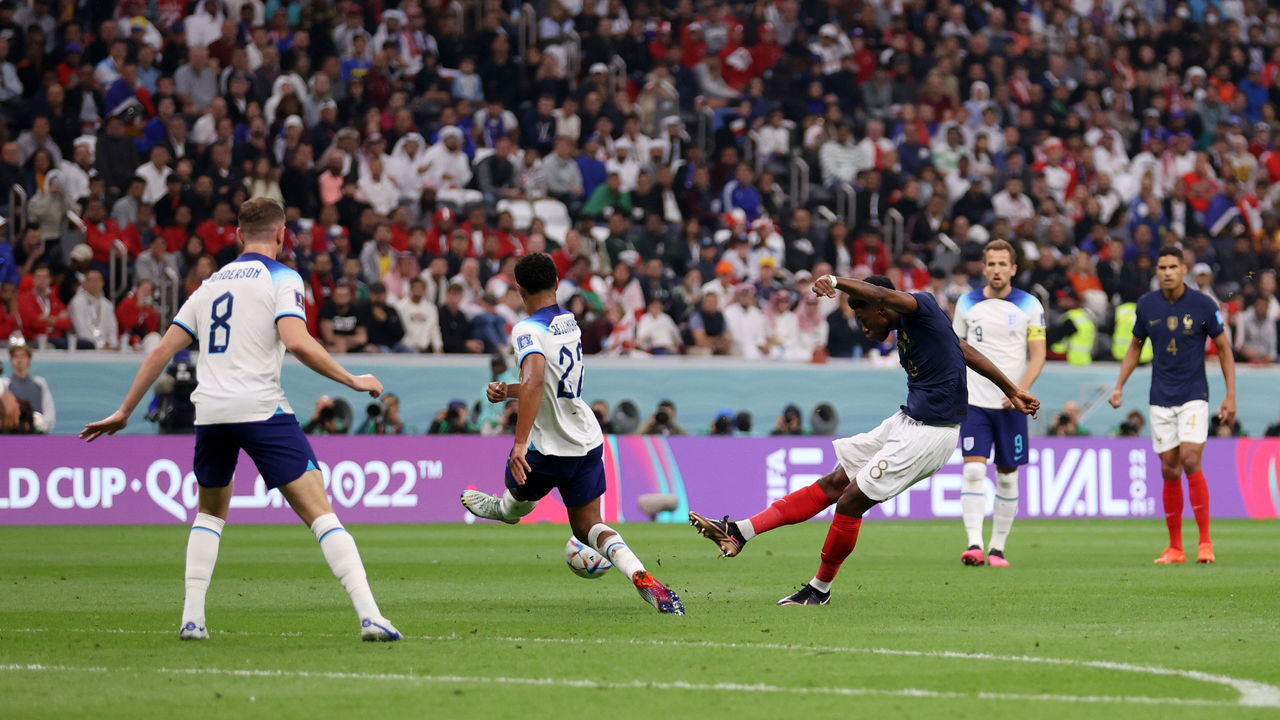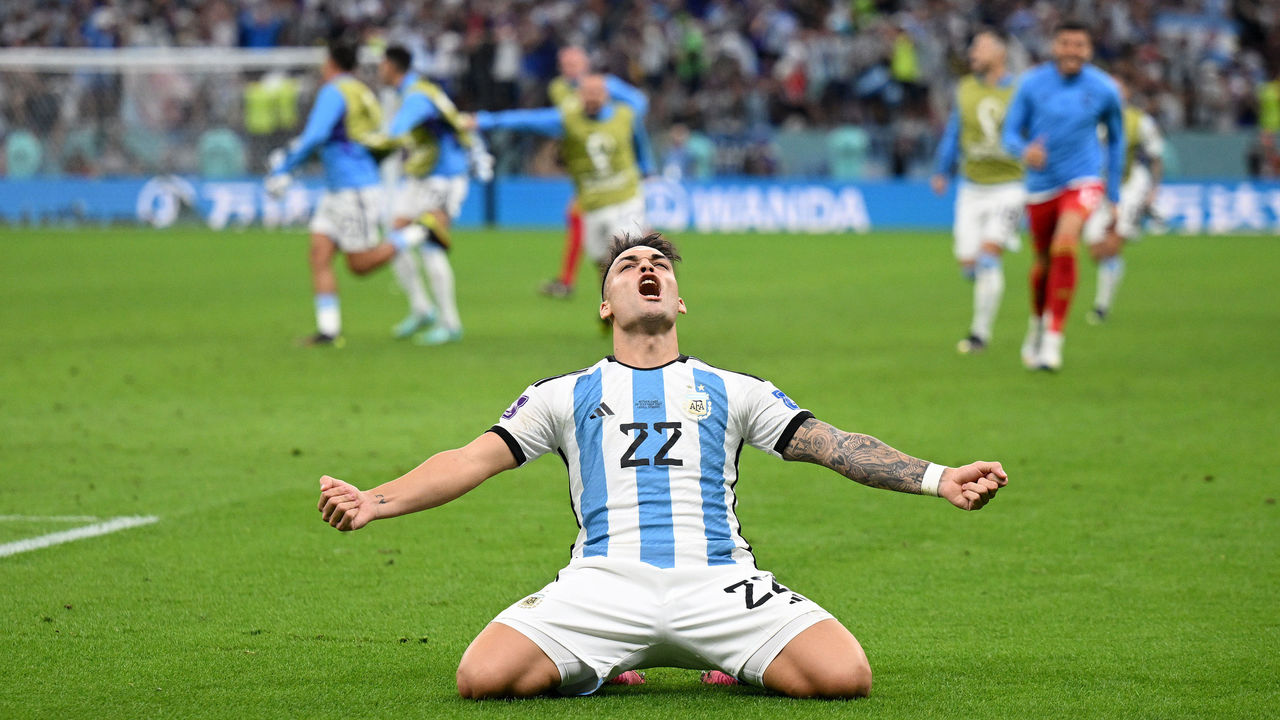-
Premier League is back: Analyzing busy Boxing Day slate of action - December 27, 2022
-
3 thoughts from Argentina's win over France in legendary World Cup final - December 21, 2022
-
Even in a World Cup of twists and turns, it came down to Messi and Mbappe - December 20, 2022
-
Team of the tournament: Best XI at 2022 World Cup - December 19, 2022
-
22 unforgettable moments from the 2022 World Cup - December 19, 2022
-
Messi finally wins World Cup as Argentina dethrones France in epic final - December 19, 2022
-
World Cup final preview: Key questions, prediction for Argentina vs. France - December 17, 2022
-
Why Qatar's sportswashing project is surviving World Cup controversies - December 17, 2022
-
How France held off lionhearted Morocco to make 2nd straight World Cup final - December 16, 2022
-
France's World Cup title defense once seemed unlikely. Now, it's near reality - December 15, 2022
Even in a World Cup of twists and turns, it came down to Messi and Mbappe
As Sunday’s World Cup final entered the final half hour of regular time, the partisan crowd at Lusail Stadium began to break out in song. Argentina moved the ball with alarming ease, and 40,000 or so of its compatriots in the stands coronated each pass. “Ole,” they chanted as their heroes completed attempt after attempt. “Ole, ole, ole.”
Up until then, France had failed to record a single shot on target. It had barely made a foray into Argentina’s penalty area. The flu virus that had afflicted the French in the days before the final seemed to have sapped all of their energy. Argentina’s 2-0 lead seemed as secure as anything ever recorded in history.
Except it wasn’t. The essence of this tournament was about to be revealed.
All it took was a turnover, a hopeful pass forward, and a run in behind defender Nicolas Otamendi for Randal Kolo Muani, one of France’s speculative substitutes, to win a penalty in the 79th minute. That set into motion the most spectacular game of football ever played in a World Cup final.
Everything changed the moment Kylian Mbappe converted that penalty. Momentum swung violently the other way, and suddenly France seemed like the clear favorite to win. Mbappe equalized 97 seconds later, leaving Argentina wobbling on the canvas. A routine affair became a dog fight.
The World Cup ended the way it started: amidst absolute chaos. The only thing that stayed on script Sunday was the fact that it went off it. These 28 days in Qatar proved that the best don’t always win, and that moments make champions, not necessarily talent alone. If something could happen, it did.
Saudi Arabia scored twice against Argentina to win a match in which it was expected to score 0.1 goals. Japan overcame 1-0 deficits to defeat both Germany and Spain. Morocco ousted Belgium, Spain, and Portugal with a ragtag ensemble and a coach who’d only taken the reins three months prior. No amount of backroom scheming and tactical planning could legislate against any of that. It just kind of happened.
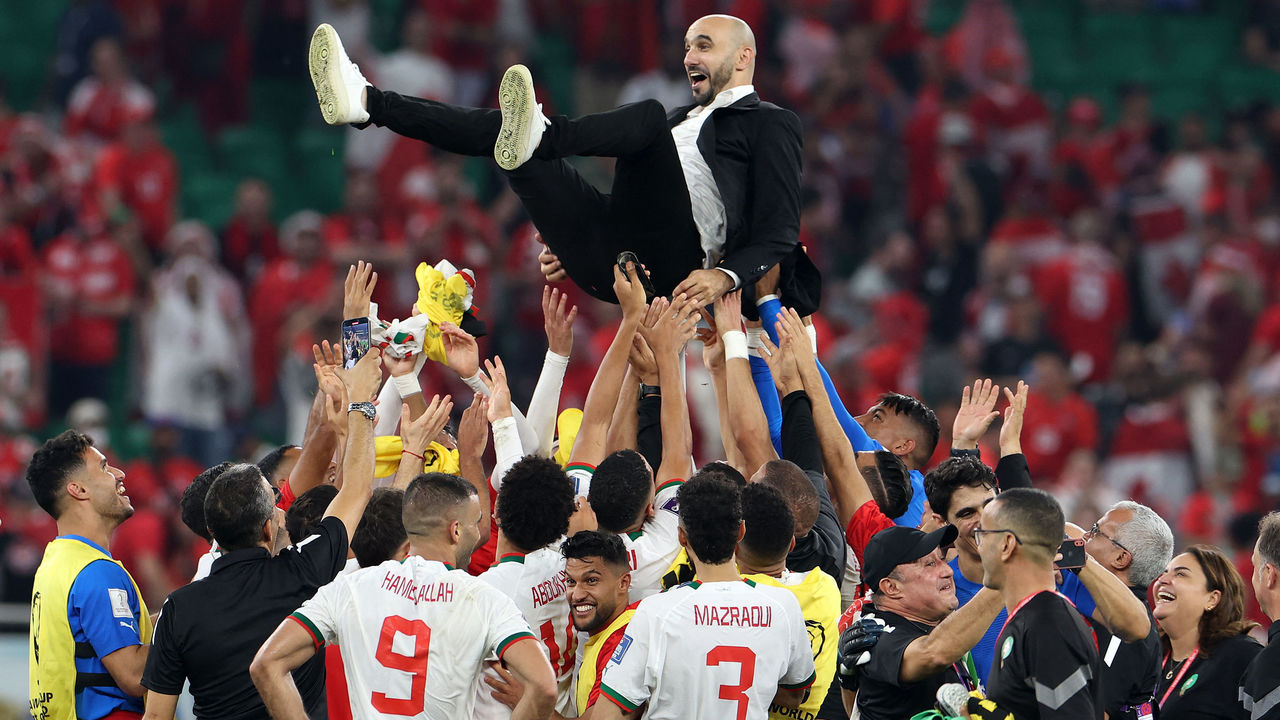
Didier Deschamps’ team was a case study in improvisation. It started the tournament without six of its regular call-ups, including Karim Benzema, who won the Ballon d’Or as the world’s greatest player weeks before kickoff in Qatar. France needed Harry Kane to miss the second of two penalties to have a chance of advancing from the quarterfinals, and it needed several players, including starters Adrien Rabiot and Dayot Upamecano, to recover from a flu bug in time to log significant minutes in the final. It needed Olivier Giroud, for so long considered a liability by his own people, to convert the few chances that fell his way, and Antoine Griezmann, a center-forward by trade, to sacrifice himself in midfield.
But two constants emerged amidst the wreckage. Argentina had Lionel Messi, and France had Mbappe. As the tournament cycled through the rounds, as the teams trudged toward the promised land, these two became more and more integral to this twisting tale. A certain air of invincibility followed them.
Messi and Mbappe were the heavyweights of the competition but also anomalies, putting all the tournament’s unsung heroes back in their place. No matter how close Argentina cut it, Messi always seemed the likeliest to determine its fate. No matter how desperate France had become, Mbappe always seemed to have a solution.
Messi didn’t just score, he created, and he took on defenders like it was 2017, turning Croatia’s Josko Gvardiol – the World Cup’s standout center-back – inside out with the same craftiness that turned Bayern Munich’s Jerome Boateng into a meme years ago. Mbappe ran like a gazelle and probed for openings. He found space even as multiple defenders descended on him with growling menace. No one at the World Cup completed more successful dribbles than him.
Then, Mbappe went and scored a hat-trick in the World Cup final. Not even Pele could manage such a feat.
The most important game of an utterly whimsical tournament came down to the greatest of all time and potentially soon-to-be greatest outdoing each other on the dance floor. They scored five of the six goals in the final and converted the first two penalty kicks of the shootout. Messi finished the tournament with seven goals and three assists. Mbappe took home the Golden Boot as top scorer. History made room for both of them.
Even when things that should’ve happened didn’t actually happen, Messi and Mbappe delivered. No one else expected Morocco to fly the flag for Africa or Brazil to lose to Croatia in the quarterfinals. No one else suspected a thing when the “oles” broke out Sunday, when Argentina’s traveling contingent swayed in the stands with a 2-0 lead to savor. If nothing else made sense, Messi and Mbappe did. Then, just before the credits rolled, the World Cup of twists and turns produced a scene anyone could’ve expected.



